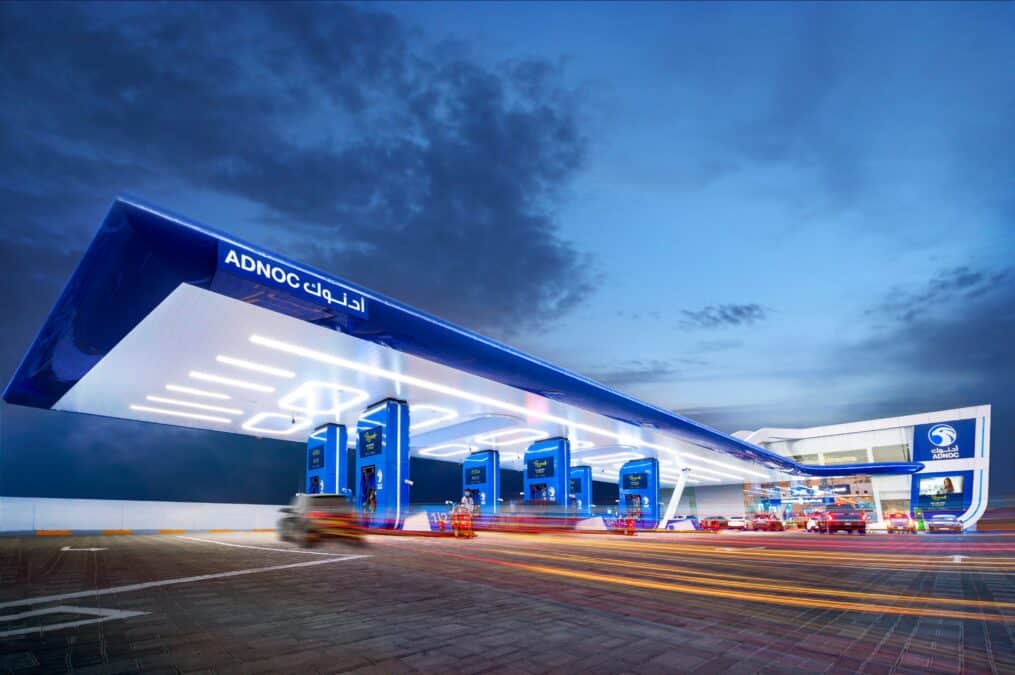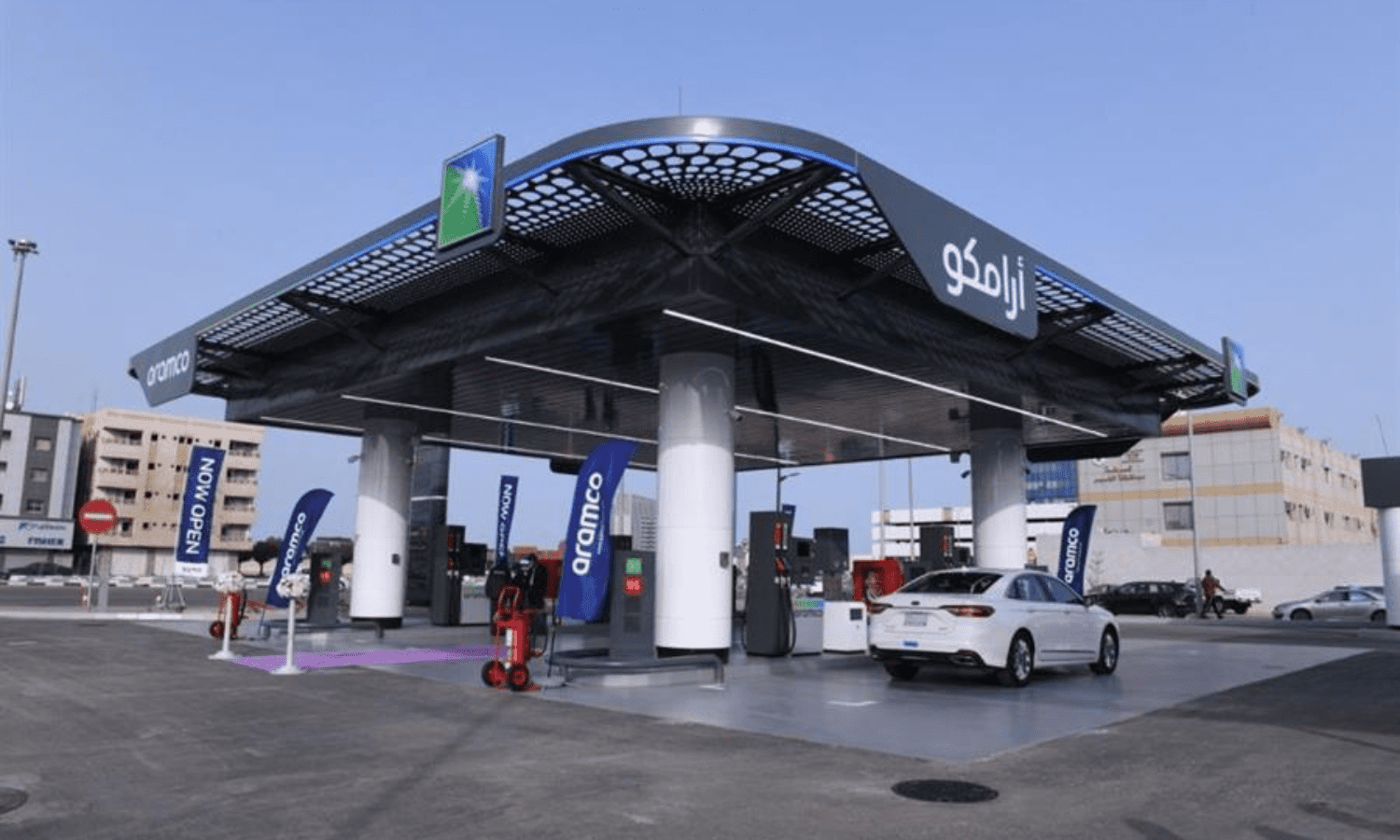DUBAI, UAE — Gas station companies in the Arab Gulf countries have experienced significant growth over the past few years due to the rise in demand for oil derivatives worldwide and the significant increase in cars.
According to experts, the annual expansion of more than 100 fuel stations in the Gulf countries provided huge revenues for these Gulf companies, which could reach half a million dollars per day in each country.
Major Gulf gas station companies — particularly Saudi Aramco, the UAE’s ADNOC, Qatar’s Woqod, and Oman’s Omco — have recently announced new expansion plans for the coming years.
The most recent plans were revealed by the Omani company Omco, which announced on February 14 that it is working to increase the number of fuel stations it owns in Saudi Arabia to 50 by 2025.
The company’s regional director in the kingdom, Nasser bin Saleh Al-Maawali, stated that the company currently owns 16 fuel stations in Saudi Arabia, in addition to 10 stations in various stages of construction that are expected to be completed by the end of 2023.
“Through the stations that are being established,” Al-Maawali continued, “the number of our stations in the kingdom will reach 26 fuel stations, distributed in the western and eastern regions.”
He stated that the kingdom’s expansion plan began in 2018 with a capital of approximately US$ 26 million, and the first of its stations went into operation in 2019. The plan is to raise consistent capital with the company’s aspirations and market expansion.
On February 15, the Emirati company ADNOC Distribution announced the completion of its US$ 186 million acquisition of a 50% stake in Total Energies Company in Egypt.

According to ADNOC, the UAE’s market leader in the fuel distribution and retail stores sector, the completion of this deal will mark the first official presence of the largest Emirati company in fuel distribution in the Egyptian market.
It also stated that the acquisition is expected to increase ADNOC Distribution’s profits before interest, tax, depreciation, and amortization by 6% after the first year of completion.
Total Energies is one of Egypt’s four largest fuel retail companies, with a strong brand and a successful track record.
This acquisition represents a significant step forward in ADNOC Distribution’s international expansion plans.
Saudi Aramco and Total Energies also launched the first joint retail network in 2021, opening two stations in Riyadh and Sayhat in the eastern region. This comes after Aramco and Total Energies signed a 50/50 joint venture agreement in 2019 to modernize the acquired network of 270 fuel stations.
The Emirates General Petroleum Corporation (Emarat) also has local expansion plans to increase the number of its stations to 180 by 2025, at the cost of US$ 401 million, by establishing 81 stations across the country.
Last year, Qatar Fuel Company (Woqod) also added seven stations to its list of stations owned, bringing the total to 129.
The highest consumption rates
According to official data issued at the end of 2021, Saudi Arabia has approximately 10,000 gas stations distributed throughout the kingdom, while domestic gasoline demand recorded about 577 thousand barrels per day.
Suleiman Al-Khattaf, director of the Refining Center at King Fahd University of Petroleum, was quoted in the Saudi newspaper “Al-Riyadh” as saying: “This consumption is undeniably large for a country with a population of 31 million, and it needs to study the reasons that led to the kingdom becoming the eighth largest consumer of gasoline in the world.”
The number of petrol stations in the UAE exceeds 800, and fuel distribution companies plan to increase this number to around 900 by 2025.
ADNOC Distribution, the UAE’s largest fuel distribution company, achieved strong business results in 2022, aided by increased fuel demand.
On February 9, the Emirati company also announced that its profits before interest, tax, depreciation, and amortization increased by 15% year on year, reaching US$ 0.96 billion.
In addition, the results of ADNOC Distribution’s business in 2022 revealed that net profit increased by 22% year on year, reaching approximately US$ 1bn in 2022.
In Qatar, the net profits of Qatar Fuel Company (WOQOD), the country’s largest gas station company, amounted to US$ 210 million in the first nine months of 2022, compared to US$ 189 million in the same period in the previous year, an increase of approximately US$ 19.7 million, or 10.4%.
According to BP’s annual report on the global energy market, Qatar’s fuel consumption increased to 354,000 barrels in 2020.
Kuwait owns 134 fuel stations spread across the country, and the average daily gasoline consumption is approximately 12.2 million liters, according to data released by the National Petroleum Corporation in December 2022.
According to the authority, all fuel consumption indicators increased significantly over the previous fiscal year, with rates ranging from 12% to premium gasoline, which dominates local market sales by approximately 2.8 billion liters annually, i.e., a consumption rate of 7.6 million liters per day.
In Bahrain, the Minister of Oil, Sheikh Mohammed bin Khalifa Al Khalifa, revealed in April 2021 that the kingdom has 54 licensed fuel stations operating, including 51 land stations for cars and three public marine stations for boats spread across the country.
Until the end of last year, the total number of commercial fuel filling stations in Oman’s governorates was 660.
According to statistics released by the Ministry of Commerce, Industry, and Investment Promotion in December 2022, these stations are represented by the Oman Oil Company, the Omani Oryx Company, the Omani Shell Company, and the Hormuz Energy Company.
Investing in gas stations is one of the most important types of energy investments today, as well as one of the most profitable because it is based on retail.
Because of the high consumption in these countries, gas stations in the Arab Gulf countries profit at least half a million dollars daily. As a result of the large profits they achieve, many Gulf and international companies are now competing to expand gas stations and all necessary vehicle services. It should be noted that Gulf companies are currently working on shifting from selling crude oil to investing in it, which increases material returns and supports the Gulf countries’ long-term economic diversification plans.








